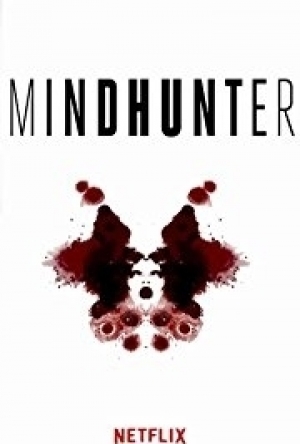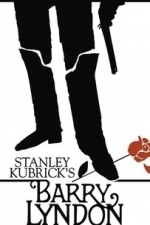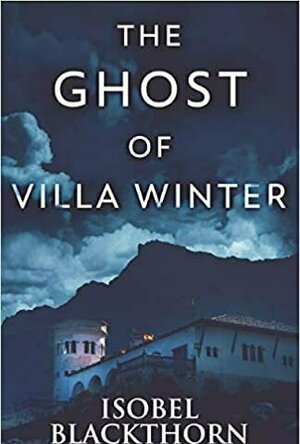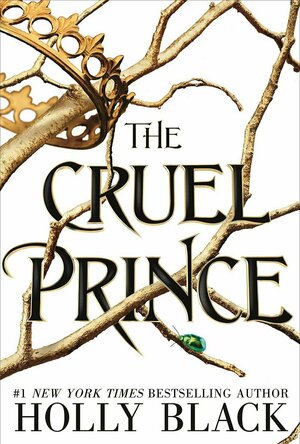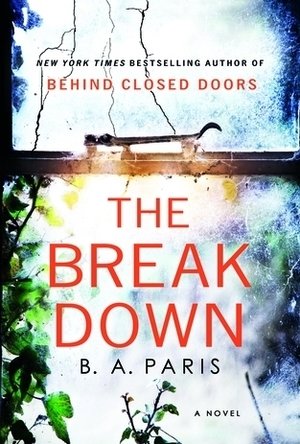Search
Search results
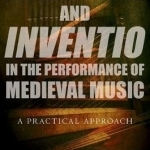
Improvisation and Inventio in the Performance of Medieval Music: A Practical Approach
Book
Improvisation and Inventio in the Performance of Medieval Music: A Practical Approach is an...
Suswatibasu (1703 KP) rated Mindhunter - Season 1 in TV
Oct 15, 2017 (Updated Oct 15, 2017)
A sum total of nothing
Totally disappointed with this series. It's slow and at times seems completely pointless. The premise sounds fantastic - two behavioural psychologists set up a team within the FBI to establish the first idea of serial killers, finding patterns in speech and action from notorious convicts such as Edmund Kemper and Richard Speck, in order to create a pioneering guide into forensic psychology. It is based on the true crime book Mind Hunter: Inside The FBI's Elite Serial Crime Unit written by Mark Olshaker and John E. Douglas.
The series is produced by David Fincher and Charlize Theron, so you would hope for something rather spectacular. Alas, it just completely falls short, each episode seems to just waste away into nothingness and the only thread there is, is the irritating behaviour of the main character who seems to be an arrogant narcissist himself and seems to completely unravel by the end of the series.
There's also a mysterious character throughout the series that doesn't come to fruition so you're left literally scratching your head wondering why the hell he was used in the first place. The acting is the only part where I can say, without a doubt, is extraordinary but that's it.
The series is produced by David Fincher and Charlize Theron, so you would hope for something rather spectacular. Alas, it just completely falls short, each episode seems to just waste away into nothingness and the only thread there is, is the irritating behaviour of the main character who seems to be an arrogant narcissist himself and seems to completely unravel by the end of the series.
There's also a mysterious character throughout the series that doesn't come to fruition so you're left literally scratching your head wondering why the hell he was used in the first place. The acting is the only part where I can say, without a doubt, is extraordinary but that's it.
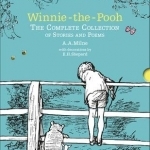
Winnie-the-Pooh: The Complete Collection of Stories and Poems
Book
This beautiful new edition, re-designed for Pooh's 90th anniversary, brings together four volumes in...
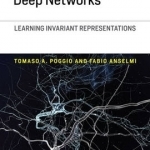
Visual Cortex and Deep Networks: Learning Invariant Representations
Tomaso A. Poggio and Fabio Anselmi
Book
The ventral visual stream is believed to underlie object recognition in primates. Over the past...
Bret Easton Ellis recommended Barry Lyndon (1975) in Movies (curated)
Hadley (567 KP) rated The Ghost of Villa Winter in Books
Mar 12, 2021
A cult (1 more)
Description of environment
All of the characters (1 more)
Amateur writing mistakes
Little does the reader know when they pick up a copy of The Ghost of Villa Winter by Isobel Blackthorn that a cult is lurking about inside the pages.
We begin our journey with Clarissa ,our main character, boarding a tour bus where she lets her personality shine through, which turns out to be extremely judgmental of anyone who isn't like her, or doesn't fit into the categories she places them in. For example, the driver of the tour bus is automatically labeled by Clarissa as a bad man because he has an uneven face and a French accent, and much of the same is said about the other seven passengers, as well. When she finally manages to stop judging the passengers, readers find out that Clarissa is somewhat of a psychic: "Ghosts spoke a language of their own and if a member of the spirit world inhabited the abandoned abode, she was sure to pick up on it. She was never wrong in these matters. Only three of the thirty or more premises she'd investigated on so-called ghost tours had contained a legitimate ghost. She prided herself on her mediumistic prowess. She was apt to pick up on preternatural inhabitants of places said not to be haunted. Sometimes she thought she could singlehandedly re-write history based on information she had gleaned, but that was being arrogant. She followed her dreams and her visions and her intuition, that was all. A natural psychic and a cynic to boot. "
It turns out that Clarissa is on the tour to see if she can encounter any spirits that may be at the infamous Villa Winter; a place that is believed to have been a secret Nazi base, as well as a place for human experiments - - - the tower was also believed to have been used as a lighthouse for German U-boats - - - which, in reality, Villa Winter is an actual place that exists on the Canary Islands in Spain.
The Ghost of Villa Winter is the fourth book in Blackthorn's Canary Islands Mysteries series, but it can be easily read as an introduction to it because you don't need any background information to understand what is going on. The novel takes on the usual tropes of a murder-mystery plot (a body is found, people are stranded and trying to figure out who among them is the murderer). Agatha Christie is one of the best authors of the murder-mystery genre who loved using her knowledge of poisons in her stories - - - Blackthorn treats the tropes with the right amount of respect which makes The Ghost of Villa Winter a pretty good story.
My major complaint for the Ghost of Villa Winter are the characters, which I found every single one quite unlikable, and even by the end, I couldn't bring myself to care at all for Clarissa. The way that she judged everyone so harshly, and her viewpoint that if no one acted the way she wanted them to, she would believe something was wrong with them that needed to be addressed in a rude manner: "He was the most anxious man she had come across in a long time. Anxious, unsure of himself and preoccupied. Far too self-conscious. The way he'd aligned his plate at lunch. That was obsessive-compulsive. And he certainly couldn't handle Fred Spice. She was sure he could be charming with pretty young ladies, patronizing even, but around her he was awkward. It was clear, too, that he was broken. It wouldn't be easy being an author knowing as you aged that all of your success was behind you and your future held nothing but diminishment. Writing was one of those activities you could pursue until you dropped and many successful authors did just that. As irritating as he could be, she felt sorry for him. "
The other characters are all seen from Clarissa's viewpoint, so they come off quite annoying, but at one point it seemed like Blackthorn was trying to redeem Clarissa's negative qualities by making her an advocate for a possibly wrongly convicted man. This story line didn't come off as redemption for me, but rather to fuel Clarissa's need to be important and in the right. Blackthorn failed to make any of the characters grow above pettiness. If a reader doesn't have a character to root for, the story becomes unenjoyable - - - which is the main reason I gave the book such a low rating; the murder-mystery was interesting, but the characters were not.
The murder, a woman who may have been part of a cult, is found inside a nailed-up crate with a tattoo of a number on her body being one of the only clues that puts Clarissa into sleuth-mode. After believing that one of the tourists is the killer, she decides to keep the discovery of the murder between her and Richard - - - a crime author who came to Villa Winter in hopes of a book inspiration. The two slowly begin to investigate their fellow tourists to figure out who had the mind and motive to kill the young woman, but this doesn't seem to be as easy as it is in Richard's books. I did have a problem though with the ending which ends up being very reminiscent of a majority of short stories: the ending came abruptly and the pieces fell into a place that was unbelievable.
I had never read any of Blackthorn's books before, so I didn't have much of an expectation reading the Ghost of Villa Winter. Unfortunately, I came away from this one pretty dissatisfied because all of the interesting points in the story (such as the cult) are rarely shown/explored further. Also, the fact that 'ghost' is in the title, I was pretty let down with only a couple of scenes where a ghost actually shows up, one such short-lived scene: "She [Clarissa] was about to carry on when a figure appeared in one of the uppermost tower windows. Appeared, and then was gone. At least, what she thought to be a figure. Could have been a ghost. " The scenes are so short that I believe 'ghost' shouldn't be in the title because it's misleading.
With quite a few amateur writing mistakes, and unlikable characters, I don't think I will read anymore of the books in this series. I loved the idea of a cult murder and a haunting in a possible Nazi base, but too much of the focus in the story was on Clarissa's judgmental outlook on everything that it ended up not being the story it could have been. I can only recommend this book to people who want a quick murder-mystery (what most call the genre 'cozy mystery'), but for paranormal lovers, the ghosts practically disappeared within a few pages.
We begin our journey with Clarissa ,our main character, boarding a tour bus where she lets her personality shine through, which turns out to be extremely judgmental of anyone who isn't like her, or doesn't fit into the categories she places them in. For example, the driver of the tour bus is automatically labeled by Clarissa as a bad man because he has an uneven face and a French accent, and much of the same is said about the other seven passengers, as well. When she finally manages to stop judging the passengers, readers find out that Clarissa is somewhat of a psychic: "Ghosts spoke a language of their own and if a member of the spirit world inhabited the abandoned abode, she was sure to pick up on it. She was never wrong in these matters. Only three of the thirty or more premises she'd investigated on so-called ghost tours had contained a legitimate ghost. She prided herself on her mediumistic prowess. She was apt to pick up on preternatural inhabitants of places said not to be haunted. Sometimes she thought she could singlehandedly re-write history based on information she had gleaned, but that was being arrogant. She followed her dreams and her visions and her intuition, that was all. A natural psychic and a cynic to boot. "
It turns out that Clarissa is on the tour to see if she can encounter any spirits that may be at the infamous Villa Winter; a place that is believed to have been a secret Nazi base, as well as a place for human experiments - - - the tower was also believed to have been used as a lighthouse for German U-boats - - - which, in reality, Villa Winter is an actual place that exists on the Canary Islands in Spain.
The Ghost of Villa Winter is the fourth book in Blackthorn's Canary Islands Mysteries series, but it can be easily read as an introduction to it because you don't need any background information to understand what is going on. The novel takes on the usual tropes of a murder-mystery plot (a body is found, people are stranded and trying to figure out who among them is the murderer). Agatha Christie is one of the best authors of the murder-mystery genre who loved using her knowledge of poisons in her stories - - - Blackthorn treats the tropes with the right amount of respect which makes The Ghost of Villa Winter a pretty good story.
My major complaint for the Ghost of Villa Winter are the characters, which I found every single one quite unlikable, and even by the end, I couldn't bring myself to care at all for Clarissa. The way that she judged everyone so harshly, and her viewpoint that if no one acted the way she wanted them to, she would believe something was wrong with them that needed to be addressed in a rude manner: "He was the most anxious man she had come across in a long time. Anxious, unsure of himself and preoccupied. Far too self-conscious. The way he'd aligned his plate at lunch. That was obsessive-compulsive. And he certainly couldn't handle Fred Spice. She was sure he could be charming with pretty young ladies, patronizing even, but around her he was awkward. It was clear, too, that he was broken. It wouldn't be easy being an author knowing as you aged that all of your success was behind you and your future held nothing but diminishment. Writing was one of those activities you could pursue until you dropped and many successful authors did just that. As irritating as he could be, she felt sorry for him. "
The other characters are all seen from Clarissa's viewpoint, so they come off quite annoying, but at one point it seemed like Blackthorn was trying to redeem Clarissa's negative qualities by making her an advocate for a possibly wrongly convicted man. This story line didn't come off as redemption for me, but rather to fuel Clarissa's need to be important and in the right. Blackthorn failed to make any of the characters grow above pettiness. If a reader doesn't have a character to root for, the story becomes unenjoyable - - - which is the main reason I gave the book such a low rating; the murder-mystery was interesting, but the characters were not.
The murder, a woman who may have been part of a cult, is found inside a nailed-up crate with a tattoo of a number on her body being one of the only clues that puts Clarissa into sleuth-mode. After believing that one of the tourists is the killer, she decides to keep the discovery of the murder between her and Richard - - - a crime author who came to Villa Winter in hopes of a book inspiration. The two slowly begin to investigate their fellow tourists to figure out who had the mind and motive to kill the young woman, but this doesn't seem to be as easy as it is in Richard's books. I did have a problem though with the ending which ends up being very reminiscent of a majority of short stories: the ending came abruptly and the pieces fell into a place that was unbelievable.
I had never read any of Blackthorn's books before, so I didn't have much of an expectation reading the Ghost of Villa Winter. Unfortunately, I came away from this one pretty dissatisfied because all of the interesting points in the story (such as the cult) are rarely shown/explored further. Also, the fact that 'ghost' is in the title, I was pretty let down with only a couple of scenes where a ghost actually shows up, one such short-lived scene: "She [Clarissa] was about to carry on when a figure appeared in one of the uppermost tower windows. Appeared, and then was gone. At least, what she thought to be a figure. Could have been a ghost. " The scenes are so short that I believe 'ghost' shouldn't be in the title because it's misleading.
With quite a few amateur writing mistakes, and unlikable characters, I don't think I will read anymore of the books in this series. I loved the idea of a cult murder and a haunting in a possible Nazi base, but too much of the focus in the story was on Clarissa's judgmental outlook on everything that it ended up not being the story it could have been. I can only recommend this book to people who want a quick murder-mystery (what most call the genre 'cozy mystery'), but for paranormal lovers, the ghosts practically disappeared within a few pages.

How They Started Digital
Book
How did Twitter get so big? Which company's idea originated because the founder was forgetful? And...
postapocalypticplayground (27 KP) rated The Cruel Prince in Books
Mar 12, 2018
Underwhelming sadly
I’m feeling a little underwhelmed if I’m honest, I have never read a Holly Black book before and with the hype surrounding this I fully felt I would be blown away, I was left with a gentle simmer. I have to say I really didn’t enjoy the characters and I’m finding it hard to think of one that was particularly likeable. Jude and her sister Tarryn are now living as wards of the man who brutally murdered their parents when they were very young, yet they seem to embrace him and throughout it doesn’t appear to be any thirst for revenge against him that fuels her, instead it seems to be focused on the torment and bullying she receives from the “cruel” prince Carden and getting back at him and his posse. I say “cruel” because it’s actually quite ambiguous, there are plenty of princes who are truly cruel in this story, more so than Carden who is just a by product of his experiences. I certainly wouldn’t agree with the blurb that he is the “wickedest of the Kings sons.” All the male characters are written without much in the way of redeeming features and most of the girls are scheming. Sadly, I didn’t really care about Jude and I found the situations she found herself in slowly more and more ludicrous almost as if it was ultimately forgotten that she was human playing fae.
However, after the first 8 chapters the story moves from High School drama to something more fantasy based, Jude finds herself tasked with an unusual role which she hopes will find her favour within the court (Tarryn gets reduced to wanting to be a good little wife to a high lord – urgh) and ultimately secure her a role in which she will win respect. Jude must learn to become tough, to learn secrets and to ultimately become a pawn in a much larger game for power. Despite my reservations Holly Black worked some magic on me that led me to not want to put the book down, there were twists and turns, truths and lies, and a plot that left me reeling, if not a little confused sometimes. It’s a book that feels like it is trying to be many things, there is one scene that feels particularly Game of Thrones esq, but it does for the most part mange to keep it’s own identity.
I have struggled to write this review and I did hover between 2 and 3 stars for a long time, I have decided on 3 as for about 2/3 I did actually enjoy the underlying story, if not the characters themselves. I found it richly woven with plenty to keep me thinking ahead and an intriguing back story. There are a number of games in play and lots of clues of being dotted around, unfortunately Jude is too caught up to put the pieces together properly which isn’t surprising as even I was struggling to keep up with all the things going on! Despite myself, I will probably read book 2 as for some reason that I can’t entirely fathom I really want to know what happens next, perhaps it’s a glamour from the pages themselves…….
However, after the first 8 chapters the story moves from High School drama to something more fantasy based, Jude finds herself tasked with an unusual role which she hopes will find her favour within the court (Tarryn gets reduced to wanting to be a good little wife to a high lord – urgh) and ultimately secure her a role in which she will win respect. Jude must learn to become tough, to learn secrets and to ultimately become a pawn in a much larger game for power. Despite my reservations Holly Black worked some magic on me that led me to not want to put the book down, there were twists and turns, truths and lies, and a plot that left me reeling, if not a little confused sometimes. It’s a book that feels like it is trying to be many things, there is one scene that feels particularly Game of Thrones esq, but it does for the most part mange to keep it’s own identity.
I have struggled to write this review and I did hover between 2 and 3 stars for a long time, I have decided on 3 as for about 2/3 I did actually enjoy the underlying story, if not the characters themselves. I found it richly woven with plenty to keep me thinking ahead and an intriguing back story. There are a number of games in play and lots of clues of being dotted around, unfortunately Jude is too caught up to put the pieces together properly which isn’t surprising as even I was struggling to keep up with all the things going on! Despite myself, I will probably read book 2 as for some reason that I can’t entirely fathom I really want to know what happens next, perhaps it’s a glamour from the pages themselves…….
Kristy H (1252 KP) rated The Breakdown in Books
Jan 21, 2018
Predictable (1 more)
Silly plot
Cass is driving home one rainy night--taking the back road to her house--when she sees a woman stopped by the side of the road. Cass pauses to help her, but eventually drives home without making any contact. She feels bad about not assisting, but the crazy storm prevents her from even seeing who is in the car. It's only later that her husband tells her that someone was murdered that night, and Cass realizes that it was the same woman she saw. Eventually Cass realizes it was a woman she knew, Jane, and she feels even worse. After, Cass is consumed by Jane's murder. She feels watched and is convinced the murderer is calling her house repeatedly. She's forgetting things, unable to work her household appliances, and receiving items she swears she never ordered. Is Cass truly going crazy--and is the murderer coming for her next?
This book was a weird one for me. I'm one of the few who didn't read Paris' first novel, but I'd heard all the hype and was curious to try this one. The novel relies on the unreliable narrator trope big time; I was certainly befuddled early on whether Cass was indeed an unreliable narrator going mad, or whether someone was messing with her. The problem, for me, was that I was expecting an amazing thriller, but I found the novel rather predictable from the get-go. I figured things out early on. Still, I have to give it to Paris: I felt compelled to keep reading despite it all. The book is a page-turner, for sure.
However, the plot is based on silly secrets and a lack of communication (both huge pet peeves of mine). Cass won't go to the police about seeing Jane's car simply because she doesn't want to tell her husband she took a shortcut she promised she wouldn't take? Seriously? Her friend's life is worth less than that? Further, she won't tell anyone about her dementia fears and forgetfulness. It was very frustrating and often times, I found myself more baffled than intrigued by the mystery.
In the end, this was an interesting one. I found it very predictable and honestly felt like I'd read this novel already (I swear I've read a book with a very similar plot: something that will drive me crazy forever). Still, it was compulsively readable and easy-to-read. Overall, probably about 2.5 stars for me. However, it seems like most people loved this, so take my review with a grain of salt!
I received a copy of this novel from the publisher and Netgalley (thank you!) in return for an unbiased review.
This book was a weird one for me. I'm one of the few who didn't read Paris' first novel, but I'd heard all the hype and was curious to try this one. The novel relies on the unreliable narrator trope big time; I was certainly befuddled early on whether Cass was indeed an unreliable narrator going mad, or whether someone was messing with her. The problem, for me, was that I was expecting an amazing thriller, but I found the novel rather predictable from the get-go. I figured things out early on. Still, I have to give it to Paris: I felt compelled to keep reading despite it all. The book is a page-turner, for sure.
However, the plot is based on silly secrets and a lack of communication (both huge pet peeves of mine). Cass won't go to the police about seeing Jane's car simply because she doesn't want to tell her husband she took a shortcut she promised she wouldn't take? Seriously? Her friend's life is worth less than that? Further, she won't tell anyone about her dementia fears and forgetfulness. It was very frustrating and often times, I found myself more baffled than intrigued by the mystery.
In the end, this was an interesting one. I found it very predictable and honestly felt like I'd read this novel already (I swear I've read a book with a very similar plot: something that will drive me crazy forever). Still, it was compulsively readable and easy-to-read. Overall, probably about 2.5 stars for me. However, it seems like most people loved this, so take my review with a grain of salt!
I received a copy of this novel from the publisher and Netgalley (thank you!) in return for an unbiased review.
Sarah (7800 KP) rated Polar (2019) in Movies
Feb 23, 2019
Could’ve been so much better
Right from the start, this film is an absolute mess. It’s so garish and in your face, and not in a good way. It’s never good when the opening scene makes you turn your nose up in dislike, and sadly the rest of the film never manages to get past this.
The main problem is the villains. Yes this is based on a comic book, but is that an excuse for having such vile looking and plain bad villains. They are all horrendously bad characters and beyond irritating, although the worst is by far the boss villain played by Matt Lucas. I do like Matt Lucas, but I’ve come to realise he’s only good when he’s playing silly sketch characters. Which is what he’s doing here, but it’s out of place and far too cheesy. He doesn’t make for a menacing villain and although he’s laughable, it’s not in the way intended.
Mads Mikkelsen is the only real reason that this film is watchable. Every time he’s on screen the film becomes as enjoyable as it can be. It’s a shame really as there is potential buried in this - the plot as a whole isn’t bad, and I like a lot of the fight scenes that Duncan is in and the gory bits too. It’s just a pity they made it so damn garish and cheesy. If they’d have tried to make it a little darker, maybe a little like Sin City or something, it could actually have been quite good and have lived up to all of Mads Mikkelsens scenes.
Unless you’re desperate, I wouldn’t recommend watching this. And if you’re a Mads Mikkelsen fan, you’d be better off choosing one of his better offerings than this!
The main problem is the villains. Yes this is based on a comic book, but is that an excuse for having such vile looking and plain bad villains. They are all horrendously bad characters and beyond irritating, although the worst is by far the boss villain played by Matt Lucas. I do like Matt Lucas, but I’ve come to realise he’s only good when he’s playing silly sketch characters. Which is what he’s doing here, but it’s out of place and far too cheesy. He doesn’t make for a menacing villain and although he’s laughable, it’s not in the way intended.
Mads Mikkelsen is the only real reason that this film is watchable. Every time he’s on screen the film becomes as enjoyable as it can be. It’s a shame really as there is potential buried in this - the plot as a whole isn’t bad, and I like a lot of the fight scenes that Duncan is in and the gory bits too. It’s just a pity they made it so damn garish and cheesy. If they’d have tried to make it a little darker, maybe a little like Sin City or something, it could actually have been quite good and have lived up to all of Mads Mikkelsens scenes.
Unless you’re desperate, I wouldn’t recommend watching this. And if you’re a Mads Mikkelsen fan, you’d be better off choosing one of his better offerings than this!
